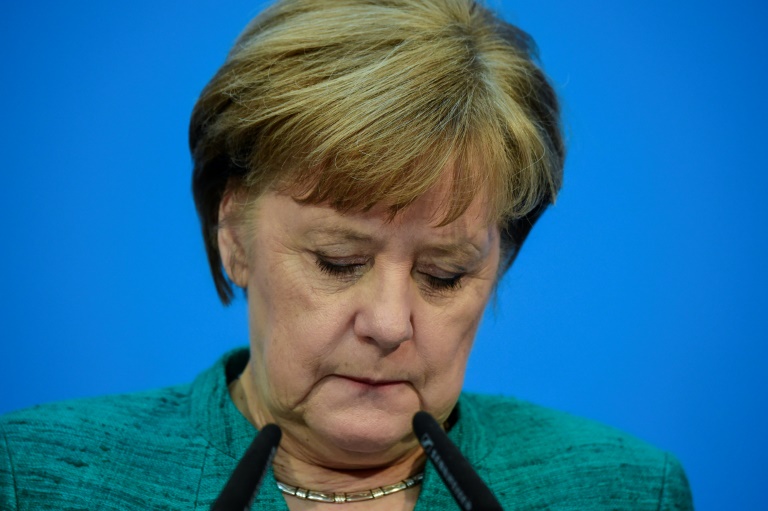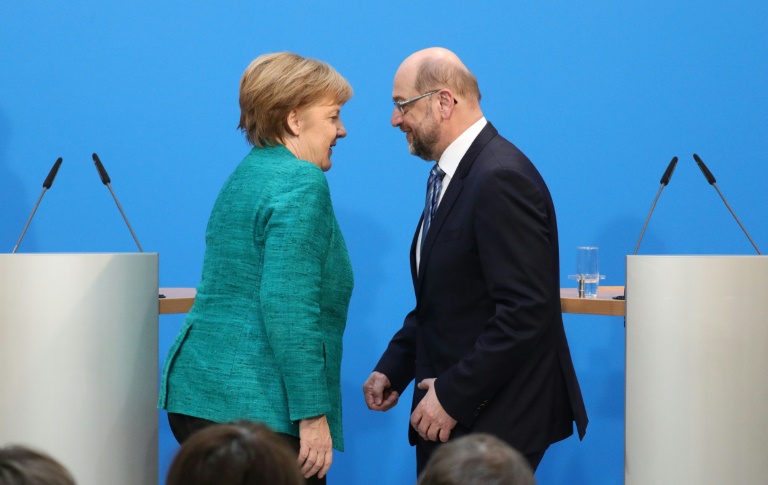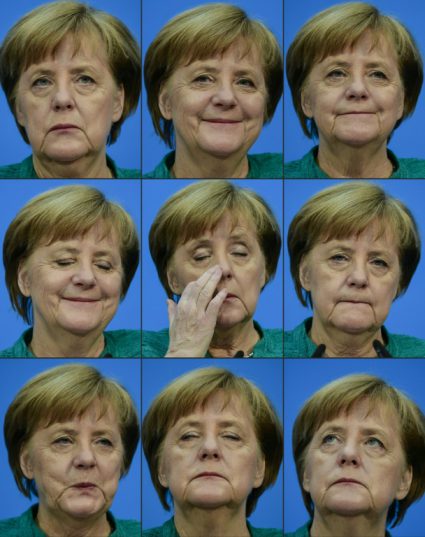Reeza slams Proteas to T20I series win over Pakistan
With the weakened Social Democrats (SPD) claiming six ministries and Merkel’s conservative CDU ceding the interior brief to their Bavarian allies, “Merkel has gifted the government to the SPD” in the name of clinging on to office, influential daily Bild charged Thursday.
“The way the cabinet is now set up is a political mistake,” CDU MP Christian von Stetten said bluntly on ARD public television.
It is rare to hear such outright criticism of the party chief from the ranks of Merkel’s conservatives, traditionally united as much behind leaders as policies.
But Stetten was not alone in his disquiet.
Merkel had brought home a “miserable” result from coalition talks, the head of the CDU’s business council Wolfgang Steiger told regional newspaper Neue Osnabruecker Zeitung.
Wednesday’s pact saw two parties weakened in September elections reluctantly agree to renew their left-right “grand coalition” or “GroKo”.
If approved in a postal ballot of SPD members in the coming weeks, it will mark the third time the two parties that dominated decades of German postwar politics as opponents have been yoked together under Merkel’s leadership since 2005.
Media spotlights for weeks glared on the centre-left’s internal debate on whether to back the chancellor yet again.

Merkel is often described as Europe’s most powerful woman
Now “some in the CDU leadership will be relieved that they haven’t arranged their own vote by members,” Munich-based daily Sueddeutsche Zeitung quipped.
– Slip of the purse strings –
Merkel’s flagship concession to the SPD was the finance ministry, previously a lever of control over the government under balanced-budget champion Wolfgang Schaeuble.
One of Schaeuble’s top priorities was upholding conservatives’ view of German interests in Brussels, pushing for strict adherence to European Union debt and deficit rules and rejecting increased flows of cash between member states.
With the ministry falling to the much more pro-EU SPD, “Germany is slipping deeper into responsibility for debts run up in other countries using the euro”, business council chief Steiger lamented.
The agreement struck Wednesday proposes more EU budget contributions and is cautiously open to French President Emmanuel Macron’s proposals for a joint eurozone budget.

Merkel and SPD leader Schulz have reached a deal for a new grand-left coalition, known in Germany as “GroKo”
Merkel’s cabinet roster also includes gaps where observers might look for rising stars of her party, ready to make their mark during what is expected to be her final term.
There is no ministry for young and ambitious CDU board member Jens Spahn, or for Annegret Kramp-Karrenbauer, the state premier of tiny Saarland viewed as a potential successor to the chancellor.
– Merkel’s fate on the line? –
“The preliminary list of CDU ministers is not a very inspiring read… Merkel’s fourth cabinet already looks tired before it’s even certain whether it will come to be,” commented Spiegel magazine’s online edition.
Neither have conservatives brought home trophies in the shape of policy red meat they can throw to a hungry base.
As well as securing three cabinet posts, the Bavarian CSU pressed through a mild form of its long-desired annual limit on refugee arrivals, ahead of a regional election later this year.
And the SPD wrung out concessions on labour law and healthcare on top of the six ministries.
In the judgement of conservative daily Frankfurter Allgemeine Zeitung: “What is left to the CDU? Merkel.”

“It will take time for Merkel to regain her starting position” as the uncontested leader of her party, political scientist Uwe Jun said
“It will take time for Merkel to regain her starting position” as the uncontested leader of her party following the grating concessions, University of Trier political scientist Uwe Jun told ZDF television.
The next test of her authority will be a party congress on February 26.
Whatever happens, it may well be that “this government does not last long,” the Sueddeutsche Zeitung predicted.
“In large parts of the country, the feeling is spreading that things can’t continue this way.”
Download our app and read this and other great stories on the move. Available for Android and iOS.